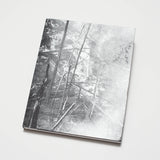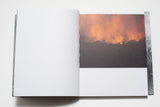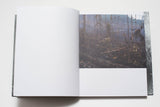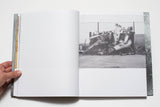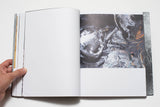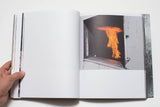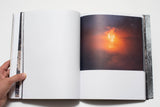Odds and Ends considers the end as guiding principle in everything around us, and delineates a portrait of an abandoned, still-smoking Earth. Marie Quéau has set out to explore lands and terrains that might be vectors for her anxieties about the future. She often undertakes this work as an obituary for our planet, harking to its accidents and its slow collapse. This investigation progresses as a hopscotch of sorts, one place immediately leading to the next. Over five years, wind, earth, and fire have guided her in piecing together this fatal fable. Time has been intentionally frozen to muffle life. This series is, in her eyes, a poem without men.
Jean-Christophe Bailly has written of Odds and Ends: “This chronicle is undergirded by the way in which debris and what we discard or abandon is completely transformed, made into ‘future ruins.’ They contain not only mysteries but anxiety: our tomorrows, our hereafters, our after-the-accidents are being questioned. [ . . . ] Its aegis of science fiction is evident and asserted not through fantasy but through the fictional shrubbery of objects themselves.”
The book unfolds on two fronts. One section is fictional, fantastical; each image communicates with the next through a detail, a tone, a form, and through this accumulation of photographs the narrative takes shape. Accordingly, Marie Quéau has invited Amélie Lucas-Gary to pen a song to accompany this sweeping visual history. Her text allows for Odds and Ends to be read on personal and on infinite levels, striging to rewrite the journey and emotions of Lucie, a character who stands in for the artist’s gaze. The other section functions as a return to reality with an author’s note and precise descriptions in the form of an index of places visited and documented between 2013 and 2017.








